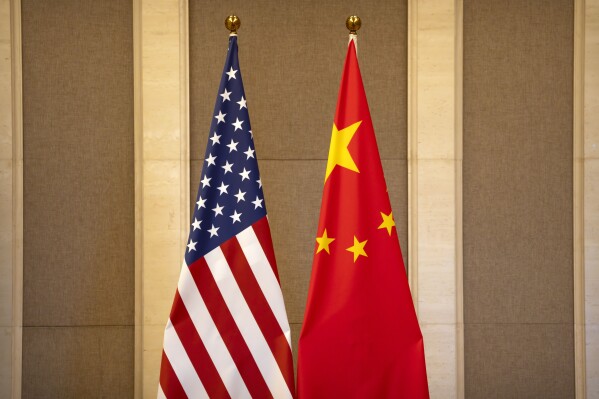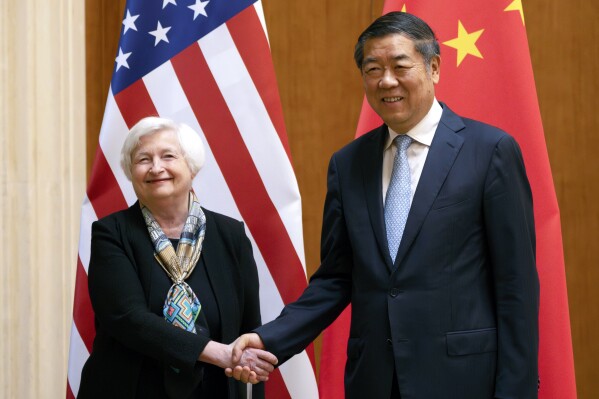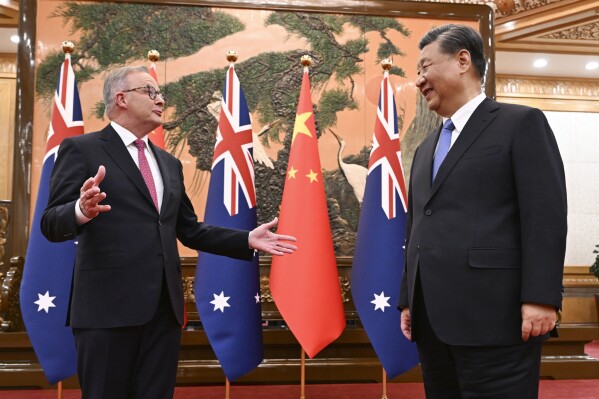Australia’s Albanese calls for free and unimpeded trade with China on his visit to Beijing
BEIJING (AP) — Australian Prime Minister Anthony Albanese is calling for the “full resumption of free and unimpeded trade” with China in a meeting with his counterpart Li Qiang on the first first visit by an Australian leader to China in seven years.
Climate change, food security and transnational crime are areas in which the two nations can cooperate, Albanese said Tuesday. The sides should discuss “ways to shape a regional and global order that is peaceful, stable and prosperous, where countries respect sovereignty and meet their obligations under international law and conventions,” Albanese said.
Geostrategic competition must be handled “through dialogue and through understanding,” he said, in apparent reference to heightened tensions between China and the United States, a key Australian ally.
""We can grow the relationship while advancing our respective interests, if we wisely navigate when there are differences,” Albanese said.
 A new survey of wealthy nations finds favorable views rising for the US while declining for China
A new survey of wealthy nations finds favorable views rising for the US while declining for China
 Yellen will host the Chinese vice premier for talks in San Francisco before the start of APEC summit
Yellen will host the Chinese vice premier for talks in San Francisco before the start of APEC summit
 Australian and Chinese leaders talk pandas and wine as ties improve despite disagreements
Australian and Chinese leaders talk pandas and wine as ties improve despite disagreements
Li was quoted by the Australian foreign office as acknowledging that people wanted see further improvement in ties. “So, we hope our two sides will continue to work towards the same direction and sustain this positive moment that we enjoy now,” Li was quoted as saying.
Reporters were ushered from the room before their meeting. Their talks are expected to focus on trade as China has eased some but not all of the restrictive steps it took as relations deteriorated.
China and Australia’s relations went into a spiral in recent years as suspicions of Chinese interference in Australian politics increased. China, in turn, was angered by Australia’s call for an inquiry into the origins of the COVID-19 virus and allegations it was seeking to intimidate members of the Chinese-Australian community.
China levied official tariffs and unofficial trade barriers that are estimated to have cost Australian exporters up to 20 billion Australian dollars ($13 billion) a year for commodities such as coal, wine, beef, barley and lobsters.
In the past few months, China and Australia have publicly signaled that resolutions were in sight for the trade issues.
Further, Australian journalist Cheng Lei was released in October after three years in detention under charges of espionage, a case that had come to be a focal point in the tensions.
Even as Albanese has largely sounded upbeat during his visit, Australia is still actively pursuing a security partnership with the United Kingdom and the United States that China views as an attempt to counter its influence in the region.
Disclaimer: The copyright of this article belongs to the original author. Reposting this article is solely for the purpose of information dissemination and does not constitute any investment advice. If there is any infringement, please contact us immediately. We will make corrections or deletions as necessary. Thank you.




